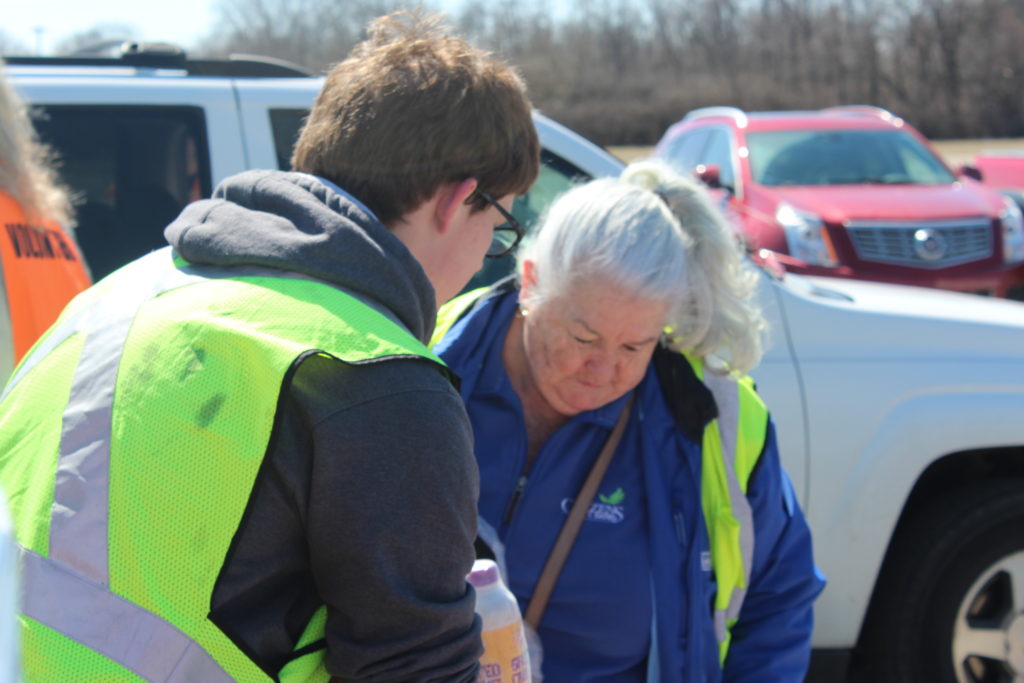We are as heavily involved in gathering information right now as we normally are in gathering food. We are about mid-way through the mammoth project of the 2018 Hunger Study. This is a deep look at the circumstances of families who are in need of many kinds of assistance. This has been a national study coordinated by Feeding America every four years for a very long time. We are able to glean information so we can better understand the issues and potential impact of efforts we may engage in the future. The project started in the fall of 2017 by surveying the agencies we supply in all eight counties to get their input and prospective for present and future activities they partner with us to accomplish. The fall project was spearheaded for us through the Ball State University Sociology Department under the guidance of Lisa Pellerin, PhD, Director, Women’s & Gender Studies. Dr. Pellerin and her team gathered the data and formatted it into a useable report back to us. The next step in this lengthy process, again through the BSU Sociology Department, is being led by Melinda Messineo, PhD, Interim Associate Provost for Diversity and Director of the Office of Institutional Diversity and her team. Dr. Messineo’s team will be surveying families at the agencies we work with to help provide valuable insights into the challenges and decision making these families face on a daily basis. We are planning to have the final report available for our use by fall of 2018 with, for the first time, county specific data from all eight counties. This information has proven to be very useful in grant writing and community conversations.
We have also been gathering feedback through surveys from staff, interested individuals and organizations. We have reached out to all the counties we serve to help us gather opinions about our organization that will be very useful as we prepare to engage in our board/staff retreat. This retreat will lead us to Strategic Clarity 2019 -2021. Our vision, mission, purpose, goals and objectives will be refreshed from our current plan that began in 2016. We have made a strong commitment to keep our plan in front of us and not sitting on a shelf. I feel it has paid huge dividends in the community response and outcomes of our programming.
We are surveying over 2,000 families who are participating in our School Pantry Program. We are getting their input every six months about the programs impact for them and their children. They are providing great feedback that we are using to help guide this relationship building based program. Getting the first-hand view point from teachers, administrators and parents on an ongoing basis will enable us to work with the specific school resources and limitations to keep this long-term focused program on point.
An on-going listening tour with our investors is part of our focus as well. Yes, we do love to meet with our investors and provide an opportunity for them to ask questions and share viewpoints with us. The focus of the meeting is to share and learn. We sometimes learn that we must do a better job of communicating the ways that they can engage with us. Investors are a great source of information to expand and inform our views on public perception of this work. We are engaged in conversations with other community stakeholders such as food councils, food summits, Community Organizations Active in Disasters (COAD), neighborhood associations, community outreach initiatives and through Q&A sessions after presenting at local, regional meetings and as guest presenter in several university classes in varying areas of study.
You help us to in many ways just by letting us know what you think. You can reach us through our website at curehunger.org, on Facebook, Twitter or email at foodbank@curehunger.org.
Tim Kean is the President and CEO of Second Harvest Food Bank of East Central Indiana. The Second Harvest Food Bank network of 115-member agencies, programs and 22 schools provide food assistance to more than 70,000 low-income people facing hunger in Blackford, Delaware, Grant, Henry, Jay, Madison, Randolph and Wabash Counties.


